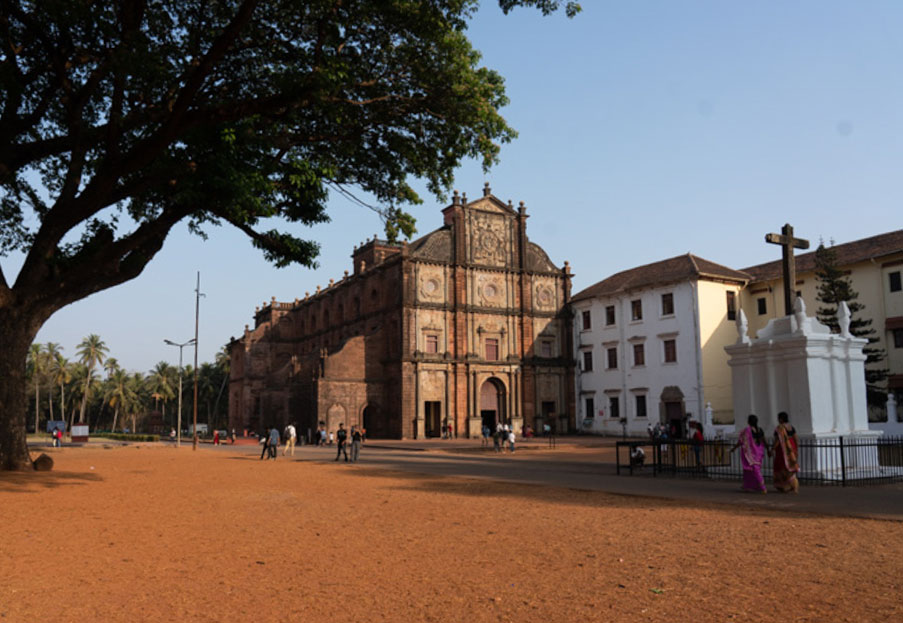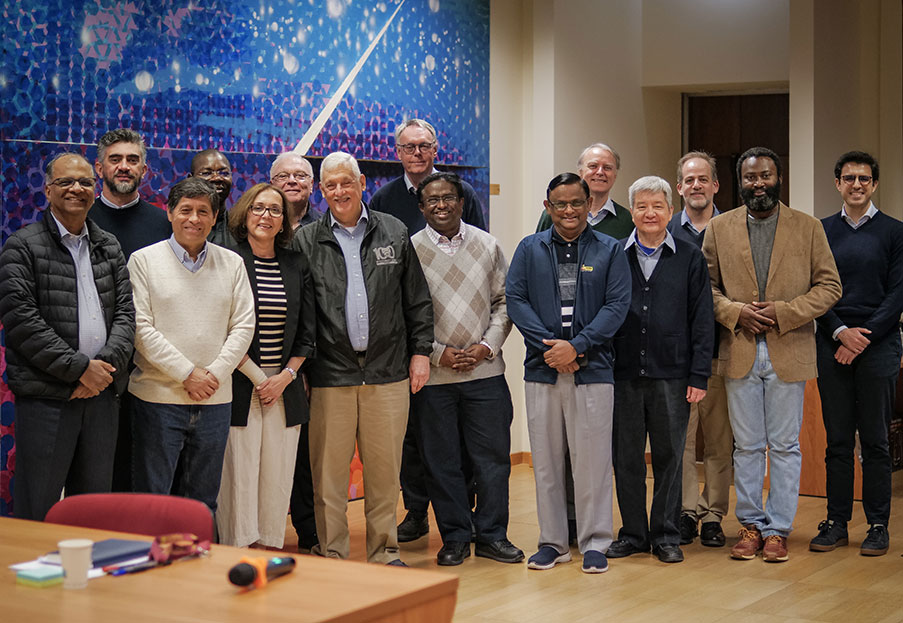Deep roots allow for unceasing growth
Father General's homily for the funeral of Fr. Adolfo Nicolás
The grain of wheat that falls to the ground and dies to produce fruit, is the parable of the life of Jesus, nailed to the cross and raised, as a sign of the love that opens the way from death to life anew. It is also the parable of the followers of Jesus, of those who, like Adolfo Nicolás, choose to “hate their life in this world” in order to become his companion, that is, to occupy the same place that Jesus occupied, the redeeming cross as the entry into life. Of those who choose to become another grain of wheat that falls to the ground, dies and bears much fruit.
The grain of wheat fallen into the ground dies to make it possible to take root and be nourished, in order to grow and bear abundant fruit. Nico experienced this process throughout his life. That is why it has been a fruitful life. He fell to earth at different times in his history. He fell into different lands. He always knew how to die, take root, grow outward and produce much fruit. Putting down roots was the experience that allowed him to acquire that awareness of the need to go deep, to penetrate all dimensions of life. One who is distracted does not take root. One must constantly dedicate oneself to the task of finding the right nutrients for the growth that produces the most rewarding results.
To be rooted in Christ is the first great challenge for those who choose to be planted in the ground where the Lord is. Everything else depends on this trusting abandonment into God's love as the source of life. To be rooted in Christ is to participate in the "inner struggle" that is a basic part of the search for the will of God, in order to find it and make it one's own. Adolfo was able to go through this challenge many times until the end of his life, without sidestepping the difficulties or letting himself be tempted to change course. To be rooted in Christ, it is necessary to become detached from oneself, "to hate one's life in this world" in order to gain true life. This seems impossible to us, but God made it possible in Nico's life.
Whoever has taken root in Christ
receives the Spirit that makes him a child of God, free from all
slavery, a co-heir with Christ in the passage from death to life. We
knew an Adolfo who was free – free with the audacity of those who have
lost their fear of following the inspiration of the Spirit. Nourished by
the soil of the Lord in which his roots were well planted, Nico
advanced steadily in the discernment of the spirits and attained the
wisdom of those who are guided by the Holy Spirit.
Through his wise discernment, the Society of Jesus received an abundance of grace to grow in creative fidelity to its original charism, responding to the demands of its contemporary mission. Adolfo made every effort, in the various responsibilities entrusted to him, especially as Superior General, to incarnate in the life and work of the apostolic body of the Society the demands and orientations of the General Congregations that followed the Second Vatican Council. He strove to serve the Church through our way of proceeding. He was always available to accompany his brothers and sisters in religious life in deepening that sense of total consecration to the Lord.
Deep roots allow for unceasing growth and bearing abundant fruit. Nico knew how to make the cries of all humanity his own, building bridges from east to west, and from north to south. Like Jesus, Nico knew how to engage diverse cultures, to learn from them, always giving witness to the Good News. He was well aware of the "failure to which humanity was subjected". He knew first-hand the sufferings of migrants and the excluded, forced to live in the peripheries and at the edges of society. He identified with their desire for justice and reconciliation.
Nico lived with "the hope that humanity would be freed from the slavery of corruption to obtain the glorious freedom of the children of God”. We knew him as a person who was alive to a universality that was grounded. He never lost sight of the vastness and complexity of all humanity and was always down-to-earth in participating in the simplicity of ordinary people's lives.
Adolfo was very intelligent. An intelligence that did not lead him to take refuge in abstractions but to penetrate deeply into the concrete life of his fellow human beings, especially the poorest and that of his Jesuit brothers. An intelligence that translated into a capacity for concrete service because it understood each situation, and made room for the inspiration that came from the Spirit.
For a long time to come, we will enjoy the abundant harvest produced by this grain of wheat which, having died to itself, has given so much life in the Spirit. His familiarity with God illuminated all aspects of his life. From this came his welcoming smile for each person or group he met, and his serenity in facing thorny, tricky, or complicated situations without being overwhelmed. May the Lord give us the grace to receive with joy so much fruit produced by Adolfo Nicolás and to know how to savour it so that we too can become disciples and companions of Jesus.
We celebrate this Eucharist in memory of Adolfo Nicolás on the eve of the feast of Our Lady of the Way, the Madonna della Strada. A devotion that has inspired the Society since its beginnings. It reminds us that we are pilgrims, and that we do not walk alone, but rather accompanied by Mary who takes us by the hand, following her son Jesus who opens the way to the Father. We do not know the details of the journey, but we have learned from companions like Adolfo that it is not necessary to have the map, but to trust in the one who opens the way for us and in his Spirit who reminds us what is needed at each moment.
I invite you to turn this encounter around the Word and the table of the Lord into an Ignatian "colloquy", first with Nico, our dear friend in the Lord, so that he may share with us his freedom, his joy, his wisdom, his radical love for Jesus Christ and his Church. Then with Mary of the Way so that she may help us walk more swiftly in the way of her Son and make the most of the opportunities that history opens up for us to show others the way to God.
I also speak with our brother and Lord, Jesus, the Crucified-Risen One, who precedes us in the loving gift of self that brings about reconciliation. With God our Father, acknowledging with gratitude so much good received through Nico and begging him to fill us with his Spirit, to be collaborators in the mission of making all things new.







